Five prescriptions to transform the NHS
- Published

The future of the NHS remains a key issue in the run-up to the general election.
As part of its Healthy Visions series, Radio 4 invited five leading practitioners and thinkers to share their prescriptions for the future of healthcare.
How does our approach need to change, if the National Health Service is to cope with future demand?

Dr Michael Dixon: Do I need the Doctor?
GP Dr Michael Dixon chairs the NHS Alliance, and advises the College of Medicine.
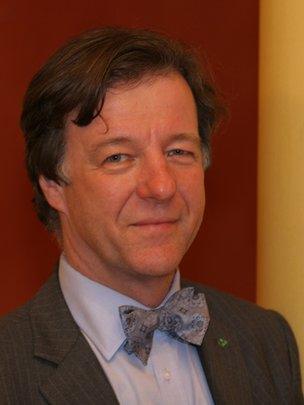
Dr Michael Dixon argues the system focuses too much on disease, and not enough on health
"Patients are the renewable energy resource of the health service. We've got to start seeing ourselves as the creators of health - individually and collectively - and not just passive recipients of whatever the professionals want to give us.
"We don't take health as seriously as disease. We focus too much on the operations on the hearts and limbs and eyes for diabetics many years down the road, or gastric banding for the overweight. We've got to start preventing those patients needing those interventions in the first place.
"I run what you might call a one-stop shop. So we've not only got conventional GP and community services, but also complementary services, a cafe, pharmacy and voluntary sector services.
"We concentrate on health in every sense, caring for patients when they need it, but enabling them to look after themselves and live better and happier lives whenever we can. I'd like to reinvent the GP practice as a club where - with minor or self-limiting illnesses - we help each other to help ourselves, rather than use professional resources unnecessarily.
"No one expects their next door neighbour to be looking after their cancer or heart disease, but if we continue to spend as much NHS money as we do at present on things which could have been prevented, or don't actually need high tech input, then we will make the health service bankrupt and we won't have one tomorrow."

Dr Charles Alessi: The Patient in Charge
GP Dr Charles Alessi is co-chairman of the National Association Of Primary Care, and a senior adviser to Public Health England.
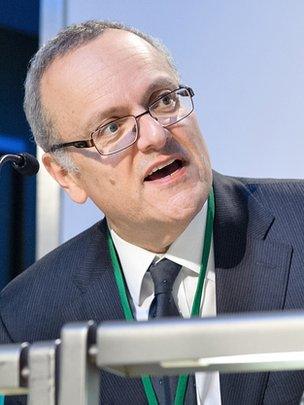
Dr Alessi believes the role of the patient will be increasingly important
"The current healthcare system is on the verge of a revolution that will make our current ways seem as quaint as the horse and cart.
"More and more patients are taking control of their health. Patients regularly come to my surgery with a sheaf of internet printouts revealing their diagnosis and their suggestions for treatment.
"We can utilise this willingness to create a better healthcare system for us all.
"Other forms of digital technology can also empower patients. For people who have a single long- term condition like diabetes, there are already smartphone apps which advise how to alter your insulin dosage, or even change your medication.
"In my vision, patients will carry their own medical records from practitioner to practitioner, demanding that care is carried out in convenient places such as pharmacies and supermarkets. Procedures like chemotherapy and dialysis will be delivered in the community or at home - not at a huge building we call a hospital.
"This may sound somewhat scary: next it'll be robots diagnosing and treating our illnesses. But the use of technology is to empower. It isn't to replace the doctor. It doesn't mean that face-to-face human interaction forged over the long-term is threatened. It is just different and more tailored to the individual.
"None of this will happen effortlessly. The change in the doctor - from the person in charge to an advocate and mentor through life-long illnesses - will not be easy. No doubt there will be resistance in places, and we will make some mistakes.
"But the days of the patient being subordinate to a great monolithic system are coming to an end."

Dame Carol Black: Wellness at Work
Dame Carol Black is a former president of the Royal College of Physicians, and led two independent reviews for government about health in the workplace.
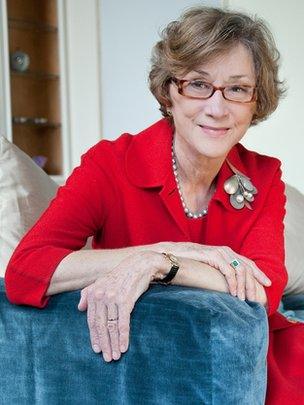
Dame Carol Black argues employers of any size can help support their employees' health
"We often think of the workplace as just where we go to do our job. But the workplace is more than that. It has the potential to be a place where you can improve your health. It can be a place to promote health - both physical and mental - and a place where you can improve well-being.
"There are good business cases now showing that investing in the health and well-being of staff is really investing in productivity, investing in being more profitable; and we've got lots of cases where we can show that. The business case has been proven.
"Good management requires that you listen to people. Even if you are a small company, there are many little things that don't require lots of money. You can take advantage of free smoking cessation classes. You can introduce a lunchtime walking club. You might have a yoga session at the end of the day.
"Our NHS is so busy dealing with people who are ill that it is very difficult to spend a lot of time and energy on prevention. As we're living longer, we're expected to work longer, so all of these things are an additional pressure, and it's really important for the workplace to play its part.
"Then I believe we will access our health service less, we will be healthier, and we will be a saving and a gain to the NHS."

Prof John Ashton: Healthier Homes
Prof John Ashton is president of the Faculty of Public Health.
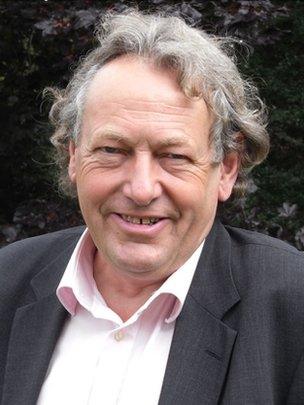
Professor Ashton wants the link between health and housing to be restored
"I'm very interested in how we live as we get older. Health and housing are indivisible. They are also indivisible from living in a good, supportive neighbourhood.
"In 1948, when the health service was founded, the Department of Health was the Department of Health and Housing.
"How can we reconnect these two important areas to make it possible for people who are living longer to live a full life in the community?
"A new generation of better designed and more attractive homes for the elderly would provide a healthier living environment for many who currently live alone in homes that are too large and insufficiently adapted to their needs.
"A return to the 'almshouse' model would provide a supportive environment, free from the isolation and the mental health problems which loneliness can cause.
"It could also help alleviate the housing crisis for younger people trying to buy their first home.
"As we contemplate all those baby boomers reaching 85 in less than 20 years, we have time to plan and get it right.
"But it's time we got on with it."

Nigel Crisp: A Health-Creating Society
Lord Crisp was chief executive of the NHS between 2000 and 2006. He is an independent member of the House of Lords, and co-chairs the All Party Parliamentary Group on Global Health.
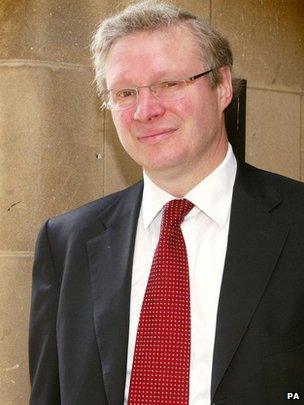
Lord Crisp argues the NHS is only sustainable if society reconfigures it together
"The election of a new government is a great opportunity to change the direction and the mood for health provision in the UK.
"The World Health Organisation got it right when it said 'modern societies actively market unhealthy lifestyles'. We need to turn this round so we're creating healthy lifestyles.
"The NHS was a great coming together of everyone involved in health services to deliver healthcare to the whole population. We need all those parts of society that affect health to come together into a new compact. And we need to be explicit about this everywhere in the country.
"We need to release the NHS and the remarkable people in it to create a long-term plan for transition. There is already remarkable consensus about what needs to be done, and we need a transition fund to support development and the double running of services as changes are made.
"There's a wonderful African saying: 'health is made at home, hospital is for repairs'. Health is made at home, and in our communities.
"The NHS - with all the important services we all rely on - will only be sustainable if we all play our part in developing a health-creating society.
"We do know how to do it. It's time to act."
The final part of Healthy Visions will be broadcast on BBC Radio 4 on Friday 3 April at 13:45 BST. You can listen to the rest of the series now on the BBC Radio 4 website.
- Published27 March 2015
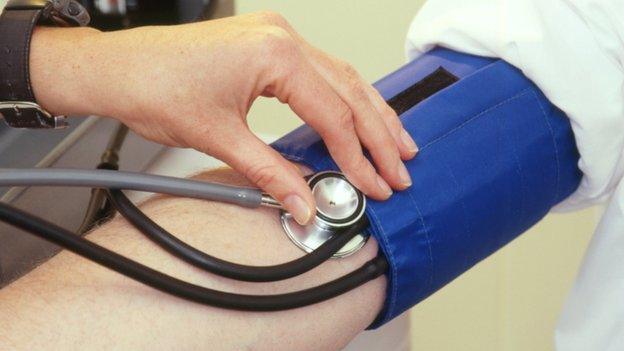
- Published26 March 2015

- Published19 March 2015